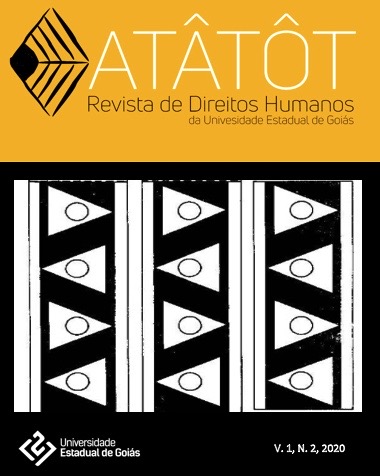What is Truth?
Keywords:
Referencial ético-axiológico; teia coesa; indivisível; pluralismo moral substantivo; a verdade material.Abstract
Abstract: This article presents a brief reflection on the concepts of truth and their implications for Law, for the materialization of human rights, as well as for human rights related to social justice and tax justice. For this purpose, a comparison is made between the conception of truth for legal knowledge, supported by Ronald Dworkin, and the conception of truth for legal practice, defended by Michel Foucault. In his legal vision, Dworkin understands that values are arranged in a cohesive web, reciprocally articulated and considered in a universal dimension. Thus, it supports the existence of universal and absolute moral values, which are timeless and objective. Its ethical-axiological framework manifests itself in an integral and indivisible way, with no place for plural truths. To analyze his legal construction thesis, propositions are extracted from his works “Justiça para uriços”, “Taking rights seriously” and “Objectivity and Truth: You'd Better Believe it[1]”, with a view to provoking reflections and make comments about them. From another theoretical and philosophical turn, Michel Foucault advocates the thesis that the multiplicity of the world does not make it possible to understand the particularities of life through a single explanatory system, there may be different behaviors, even contradictory, both morally valid if considered contextually, however, collisions of values cannot be resolved and indeterminable if considered from a universal perspective and if considered as absolute. Foucault's legal-philosophical propositions were obtained from the work “The truth and legal forms”, which were complemented, at the conclusion of this article, in the studies of Luís Fernando Barzotto, seized from his book “Philosophy of law: the fundamental concepts and the jusnaturalist tradition” and in the philosophical thought of Ludwig Wittgenstein, absorbed from his work “Philosophical Investigations”. Also, in another investigative dimension, it discusses the absolute or relative nature of the concept of truth not in relation to ethical-moral values, whether they are absolute, universal or plural, variable, such as those worked by Ronald Dworkin and Michele Foucault. It now focuses on highlighting the dichotomous reason between absolute truth versus relative truth, turning attention to another dilemma involving the truth value. It seeks to know how much the thinking subject (cognizing subject) can know about the object thought (knowable object). This topic is discussed in dialogue with studies developed by Demetrius Nichele Macei in his book “The material truth in tax law: administrative and judicial fiscal citizenship”, in Roberto Freitas. Filho, in his work “Critical Legal Studies (CLS)” and coherence of decisions”, and in James Marins, based on his book “Brazilian tax procedural law: administrative and judicial”, among other legal experts
Downloads
Published
Issue
Section
License

This work is licensed under a Creative Commons Attribution-NonCommercial-NoDerivatives 4.0 International License.










